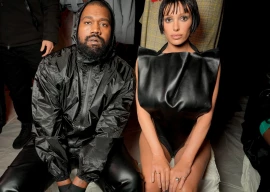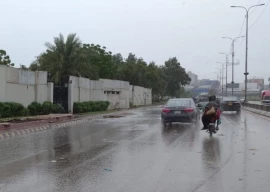
As a Scottish-Pakistani journalist who has lived in Palestine, I have suffered my fair share of prejudice and stereotyping, ranging from being called a Paki-terrorist to a haggis-eating Scot who prays for the demise of England. However, nothing prepared me for the recent Twitter war I got caught up in, simply for using the hashtag #GazaUnderAttack.
On day one of Operation Pillar of Defense, live updates were not only coming in from the BBC or CNN, but also from so-called citizen journalists — individuals tweeting from the ground. As Israeli F-16s fired rockets into the densely populated Gaza Strip, the Israeli Defense Force (IDF) decided to pre-empt worldwide condemnation over its Gaza offensive by aggressively pushing out its version of events.
The IDF (@IDFSpokesperson) employed young Israeli keyboard warriors, who posted round-the-clock updates on Facebook and Twitter. Not to be outdone, Hamas (@AlQassamBrigade) fired back with their own tweets publicising its rocket and mortar attacks, which it called “Operation Shale Stones”, resulting in the world’s first social media war.
“From today the IDF is biggest army on twitter @IDFSpokesperson,” came a tweet from 26-year-old Sacha Dratwa — a snowboarding Belgian-Israeli who runs the IDF’s social media desk. Hamas shot back with, “@SachaDratwa @IDFSpokesperson Really, but sorry you have been defeated in Tel Aviv few hours ago? How come you are the biggest army on Twit?”

By employing social media and media sharing websites like, Twitter, YouTube, Facebook, Instagram and Pinterest, Israel broadcast their version of the events directly to the public, as opposed to speaking solely through the media.
Israel’s attacks had sparked international condemnation and people had taken to Facebook and Twitter to voice their views and vent their anger. Similarly, those outraged by Hamas rocket attacks retaliated with a hashtag war. Soon it turned into a popularity contest between #PrayForGaza and #PrayForIsrael. Fellow “tweople” as they are known, were giving live updates on both sides, hours before stories even hit the mainstream news outlets. I barely read or watched the news during Operation Pillar of Defense and heavily relied on tweople in Palestine for information, due to the fact that I believed that the mainstream media was biased in its reporting of Israel-Palestine conflict. Take the BBC for example, which reported: “Three Israelis have been killed by rocket-fire from Gaza, where 13 Palestinians have died in Israeli air strikes,” it was clear that impartiality didn’t exist.

As the cyber-war reached a fever-pitch, it started spilling out in to the sidelines and Pro-Israeli trolls jumped in and began systematically harassing and abusing those siding with Gaza.
“In the name of humanity, how can you justify killing an 11-month-old baby boy. #GazaUnderAttack,” I tweeted referring to a BBC journalist’s young son who was killed by Israeli air strikes. The response I got was shocking.
“Arabs are the biggest killers, they should be cleansed from the world,” tweeted one troll. “You Paki Arabs deserve to die! #Israelunderattack.”

Another troll even decided to pull out statistics. “Theres 1billion Muzlim [sic] who only one 6 Noble Prizes compared to 146 Jews. Tells you that Muzlim are stupid peaple.”
Rather than get angry, I decided to point out that his statistics really did not help his argument. I also commented on his terrible grammar, which led to more abuse.
“@zabmustefa if calling me a nazi means hoping all palestinian die, then ok I’m a nazi #IsraelForever.”
Alongside news and updates, the IDF also posted YouTube videos, graphic images and infographics and encouraged their followers to like and share these with their own followers. Within minutes of the strike that killed Ahmed al-Jaabari, the Hamas militant wing leader, the IDF posted a video of his car exploding on YouTube. Other clips tried to counter claims that civilians were being targeted by the IDF, one animated clip even depicted Hamas fighters firing rockets from a school which clearly displayed a UN logo.
All this was to support IDF accusations that Hamas was using human shields and storing weapons in civilian houses, schools and media buildings. “Warning to reporters in Gaza: Stay away from Hamas operatives & facilities. Hamas, a terrorist group, will use you as human shields,” tweeted the IDF.
Responding to @IDFSpokesperson, I asked if all 1.7 million people in Gaza were Hamas terrorists.
“Arabs use kids as suicide bombers to kill Israelis. They are the real terrorists you dirty Paki liar,” was one response.
“Soon we will kill all your khanzeer (pig) children. I will cheer when they kill more in Gaza,” said another
“u need a drink [sic] oh I forgot Muslims don’t drink,exept the blood of other nations.pls RT.”
The trolls started to report and “flag” my tweets about Gaza, which led to an automatic suspension of my account. Ironically I wasn’t the one using hate speech and so I was back up and running within an hour.
Then came the far-right English Defense League (EDL) trolls, spewing obscenities about Islam, telling me how I belonged to an inbred race and calling for the death of all Muslims.
“Nuke Gaza! The world needs less Muslims! #EDL,” tweeted one EDL troll.
I asked if I should find him a local Nazi group to join. Mocking EDL trolls was entertaining as they eventually wallowed in their own stupidity, but I began to worry as the number of trolls spewing hate speech started increasing. The final straw came on the seventh day of Israel’s attacks. A previously blocked Israel troll made a new fake account, @pakizabmustefa with a profile picture of a headless pig, wrapped in a kuffiyeh (Arab scarf), and vowed that he would get Mossad to hunt me down. Reporting a “tweet crime” to the London Metropolitan Police was a bizarre experience. To start with, both police officers didn’t have any idea about Twitter, so I had to explain tagging, profiles and how it works. After filing a report, I was informed that their internal “cyber abuse” department would be taking it from there.
As Israel and Hamas finally agreed on a ceasefire, the hashtag battle also began to die down along with the trolling. In the eight days of Operation Pillar of Cloud, I lost count of how many times I was called a Paki-Arab on Twitter. The fighting may have ended for now, but it’s clear that any future war will not just be waged with rockets and fighter planes, but also hashtags and twitpics.
Published in The Express Tribune, Sunday Magazine, December 2nd, 2012.
Like Express Tribune Magazine on Facebook and follow at @ETribuneMag
COMMENTS (3)
Comments are moderated and generally will be posted if they are on-topic and not abusive.
For more information, please see our Comments FAQ



















































the pics in this story are really stupid. they say something else and lots of people are mistaking them for being pro israeli. ET should change them.
This is a very funny and entertaining article. So sad that trolls have to resort to this for Israeli support. Probably because they know they're up against the Palestinian movement.
i am not a dual national national so i should rather mind my own business (worry about Pakistan)